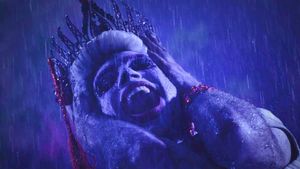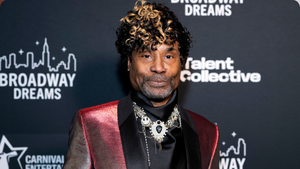A hard-hitting
documentary on hip-hop that asks why it often shows black
men as violent sex addicts who abuse woman is sparking
debate among a generation of young people raised on
rap videos.
In Beyond
Beats and Rhymes, filmmaker Byron Hurt, a
former college football quarterback, goes on a journey of
discovery around the United States, challenging hip-hop
artists and record producers in the
multibillion-dollar industry.
The documentary,
due to be aired on national PBS television on Tuesday,
has been screened to dozens of audiences of young people and
students, said Sabrina Schmidt-Gordon, the film's
coproducer.
Most critics of
hip-hop argue that it shows women as sex objects, but the
documentary focuses on images of hypermasculine men and says
black youths fall into the trap of trying to emulate
the thug life of the videos.
"We are hoping
to...challenge that narrow, destructive vision of
masculine identity, particularly for young men and boys that
are the faces of hip-hop," Schmidt-Gordon said in an
interview. "They are the ones who are dying young from
gun violence, and women are victims of domestic
violence. Our communities have the most to lose by
buying into violence and sexism."
One scene shows
protests by students at Spelman, a black women's college
in Atlanta, against artist Nelly, whose video for "Tip
Drill" showed him swiping a credit card along the
backside of a nearly naked woman.
Another scene
shows wannabe rap stars in the street outside a hip-hop
summit in New York vying with each other to produce the most
insulting and demeaning rhymes.
As hip-hop has
turned into a blockbuster industry with sales soaring
among whites, pressure has increased on black artists to
produce music based on sex and violence, according to
artists such as Chuck D, interviewed in the movie.
At the same time,
students said there was little debate about the content
of the music or videos, ironic in a medium that flourishes
on wordplay.
Students from
black colleges at a screening in the Florida state capital,
Tallahassee, last week said the documentary was an
eye-opener.
"I had never
thought about how black males were being dragged down by
the degradation of black female sexuality in hip-hop," said
Ashley Matthews, 20, of Hampton University in
Virginia.
Matthews said she
had watched rap videos on the Black Entertainment
Television channel nearly every day since she was 12 but had
recently overcome what she described as a
"near-addiction." "BET is very entertaining," she
said. "That's the reason why you don't think
anything is wrong with it."
Ronald Clark, 20,
said the influence of hip-hop videos was evident on
campus at Hampton, a private college, where male students
felt under pressure to behave like thugs.
"We are
destroying ourselves socially, and these guys [in the music
industry] are cashing checks, and only a small percentage of
my generation is understanding what's going on," Clark
said. (Reuters)




































































Charlie Kirk DID say stoning gay people was the 'perfect law' — and these other heinous quotes